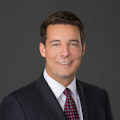Avoid the top 10 financial mistakes from the pandemic: Part 1
Coping with the coronavirus economic downturn has been difficult. Regrettably, many doctors are falling into common pitfalls in the ways they save, invest, and spend their money throughout this downturn. Here are the most common errors and how to avoid them in order to reach financial success.
Failing to take advantage of record low interest rates
The coronavirus has had a dramatic economic impact, with unemployment soaring due to layoffs. In response, interest rates have dropped to record lows. Home mortgage rates have dropped to 2.5% on a 15-year fixed conventional mortgage, 3% on a 30-year fixed mortgage, and jumbo rates are only slightly higher. Meanwhile, the prime interest rate banks are charging their best-rated customers remains at 3.25%. Unfortunately, most doctors have not taken advantage of these record-low rates by refinancing.
Through consolidating debt and refinancing, you can cut interest rates, dramatically reduce the number and amount of monthly payments, and in some cases convert the interest paid to tax-deductible status. This can free additional funds to increase savings, allowing you to reach your financial goals faster.
Not restarting your savings plan
You likely suffered a substantial financial hit in March when the American Dental Association advised practices to stop nonemergency procedures. In response, most doctors stopped or dramatically reduced what they saved monthly. Now that your practice has reopened and is hopefully operating near prepandemic levels, it’s time to restart or increase your savings program to get your financial game plan back on track. Even if you can’t resume savings to prepandemic levels, it’s critical to restart your program on an automatic draft basis and then ratchet it up as your finances improve.
Holding excess cash
During an economic crisis, it’s natural to want to hold cash to protect yourself against the unknown. Some advisors suggest keeping an emergency fund equal to six months of your living expenses in cash. However, we recommend tapping your home equity line of credit, practice line of credit, Roth IRAs, HSAs, and personal investments first to cover those needs. As a result, you need to keep only a small amount of cash on hand in no-interest checking and savings accounts and invest the balance to substantially increase your investment return.
Overreacting to the investment downturn
When the S&P 500 stock index dropped 20% in the first quarter, it created substantial fear and anxiety. During these precarious times, you need a financial advisor to “talk you off the ledge” so you can stay invested. No one ever got rich by buying high and selling at the bottom. Selling out based on an emotional decision has proven quite costly since the S&P 500 has risen sharply (up 35% as of August 31) since March 31. If you sold your stocks, it’s time to develop a reentry plan with your advisor to get back in the game. You can’t reach your financial goals with 0%–1% sitting in cash.
Withdrawing retirement funds prematurely
In response to the pandemic’s crushing economic blow, Congress passed the CARES Act, allowing penalty-free access to your retirement funds (under certain circumstances) to meet financial emergencies. However, just because you can access these funds penalty-free does not mean you should!
Raiding your retirement accounts to pay off debt or for other reasons may feel good emotionally, but it can wreak havoc on your long-term finances. Unless these funds are repaid on a timely basis, you’ll end up owing federal and state income taxes. More importantly, you’ll lose the investment gains on the funds withdrawn (up 35% since March 31), which may cost you thousands of dollars. If you need emergency cash, get it from the sources outlined above and repay what you’ve withdrawn from retirement.
Stay tuned for the January issue of Dental Economics to read about the other five pitfalls to avoid.
WES LYON, CPA, CFP, is a tax and business planning advisor. JOHN K. McGILL JD, MBA, CPA, publishes The McGill Advisory newsletter through John K. McGill & Company Inc., a member of The McGill & Hill Group LLC. It’s your one-stop resource for tax and business planning, practice transition, legal, retirement plan administration, CPA, and investment advisory services. Visit mcgillhillgroup.com.
About the Author

Wes Lyon, CPA, CFP
Wes Lyon, CPA, CFP, is a tax and business planning advisor for John K. McGill & Company, specializing in helping dentists and specialists nationwide. Wes is a graduate of Virginia Tech and holds degrees in both accounting and finance. He has obtained his Certified Public Accountant Certificate as well as his Certified Financial Planner certificate.

John K. McGill, JD, MBA, CPA
JOHN K. McGILL, JD, MBA, CPA, provides tax and business planning for dentists and specialists. The McGill Advisory newsletter is published through John K. McGill & Company Inc., an affiliate of the McGill & Hill Group LLC. It is your one-stop resource for tax and business planning, practice transitions, legal, retirement plan administration, CPA, and investment advisory services. Visit mcgillhillgroup.com or call (877) 306-9780.
